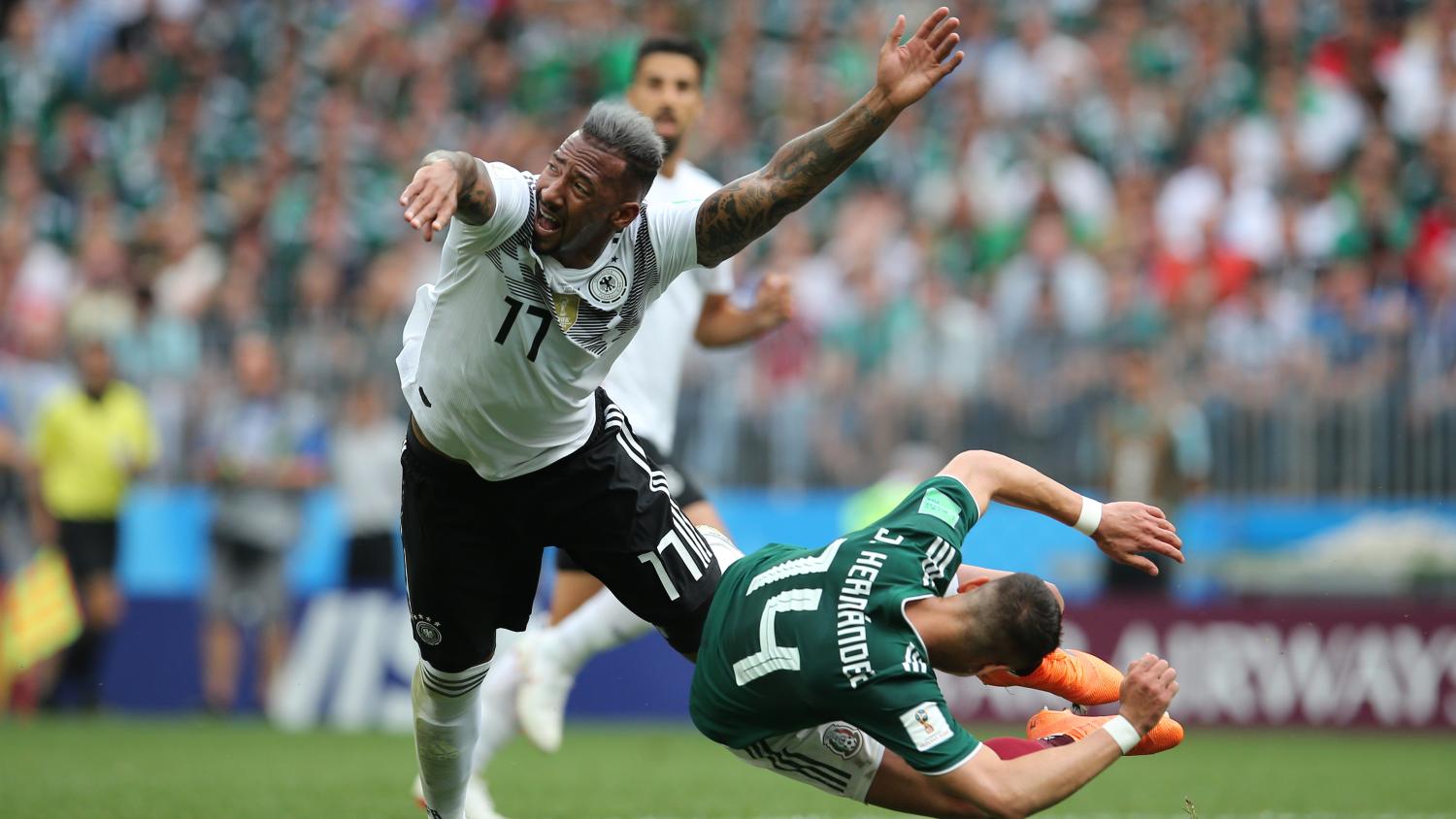Germany flamed out of the 2018 World Cup with two losses and one last-minute victory. Die Mannschaft brought to Russia many of the same players and ideas the Germany squad had used to win the 2014 World Cup, but with a far worse result.
Now returning to the pitch for the first time since the shock loss to South Korea in Russia, Germany is starting the next World Cup cycle apparently not having learned much from its World Cup failure — or maybe not caring, trusting in what brought the country its fourth World Cup trophy four years earlier.
Joachim Löw announced the Germany squad for the upcoming UEFA Nations League match against France and a friendly with Peru and it looks pretty familiar.
Of the 23 players called up by Löw, 17 were in Russia, where Germany produced its worst-ever performance at a World Cup.
Here's Joachim #Löw's squad for our Nations League opener vs. France and friendly vs. Peru #DieMannschaft #GERFRA #GERPER pic.twitter.com/nzlDB4GMKK
— Germany (@DFB_Team_EN) August 29, 2018
There are of course some big names missing, namely Mesut Özil, whose retirement from international football was highly publicized.
There are three newcomers to the squad: defenders Tilo Kehrer and Nico Schulz plus promising 19-year-old midfielder Kai Havertz. Only two others have fewer than 10 caps.
Welcome to #DieMannschaft, @KehrerThilo, Nico #Schulz and Kai #Havertz! pic.twitter.com/TGkzAu9c39
— Germany (@DFB_Team_EN) August 29, 2018
Overall, it’s clearly business as usual for Germany.
The team that revamped itself through Jurgen Klinsmann and then Löw, highlighted by the 2014 world championship, is sticking with its guns, for better or worse.
It’s rare for national team coaches to get more than one World Cup cycle. But heading into the 2022 World Cup cycle, Löw is beginning his fourth, having taken over for Klinsmann after the 2006 tournament. Germany is sticking with Löw and Löw is sticking with his guys.
There is some recognition change must occur. Löw said in the press conference announcing the Germany squad that the team must be more versatile. But you’re not going to revamp a team without changing some of the parts.
Joachim #Löw: "We need to find new ways to be more versatile with our play." #DieMannschaft pic.twitter.com/H5wCQixzED
— Germany (@DFB_Team_EN) August 29, 2018
It’s tempting to look at Germany’s success (runner-up, third, third, champion) in the four prior World Cups and give Löw the benefit of the doubt. Germany won all 10 of its World Cup qualifiers with an absurd goal differential of plus-39.
But the cracks began appearing before the 2018 World Cup even began, with losses to Brazil and Austria in the lead-up to the tournament before the reigning champion scraped by Saudi Arabia in its final tune-up.
Germany now has two wins in its last nine since finishing World Cup qualifying. You’d expect a change to be made with a return as poor as that from the second greatest soccer nation (in terms of World Cup success). But so far there's no sign of change to come from Germany.
Mexico, now ranked just one spot behind No. 15 Germany in the FIFA rankings, will be just fine with that, as will the rest of Europe looking to capitalize on a wounded giant.





